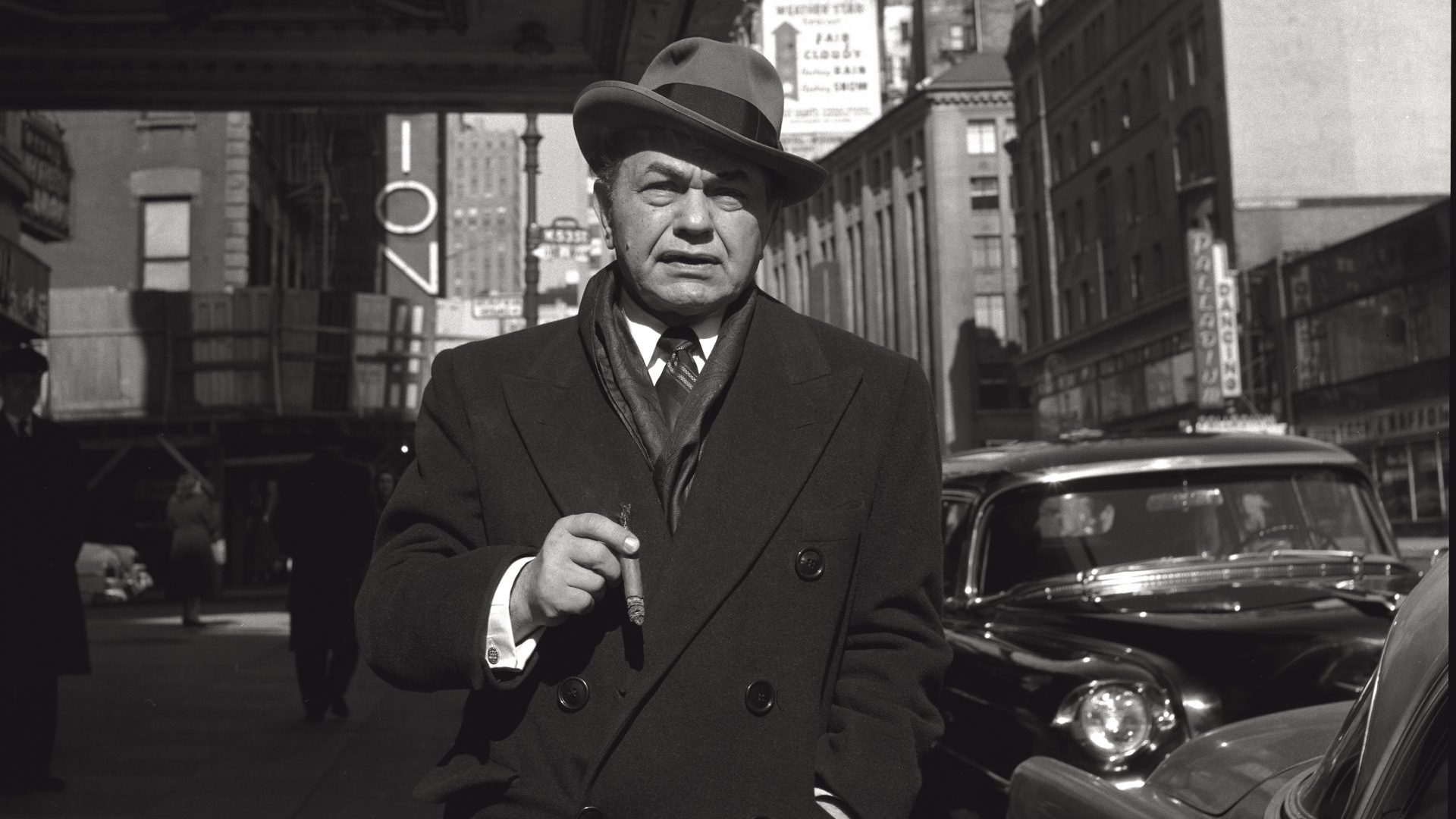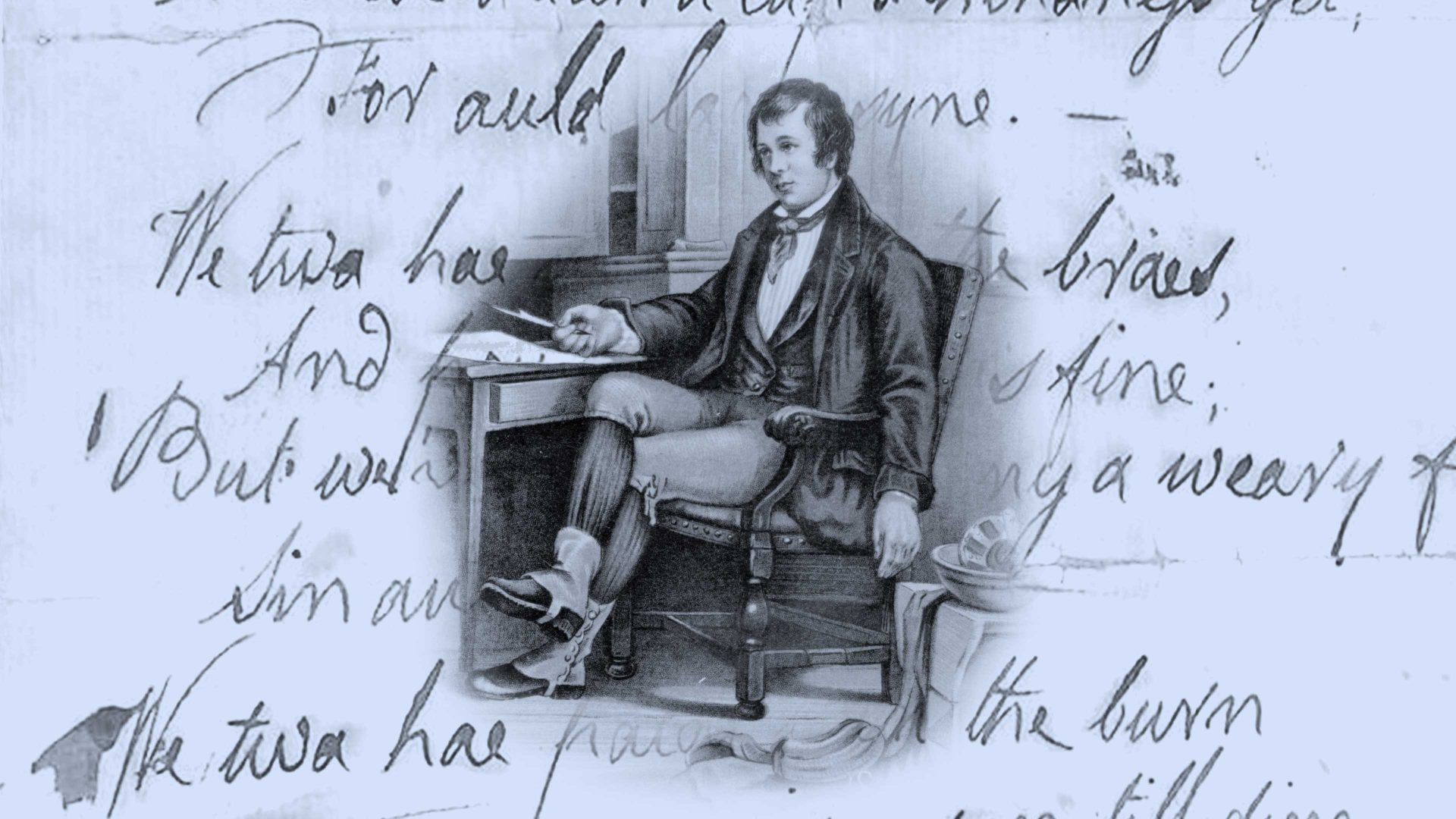The end for Rico was appropriately tawdry. Holed up among some dustbins behind an advertisement hoarding, he managed barely a couple of shots before Sergeant Flaherty raked the billboard with bullets from a machine gun.
The police officers ran to where Rico lay dying in the brown roadside slush of a hard Chicago winter. After a few defiant words he rolled on to his back and looked up at the night sky, the light going out in his eyes. “Mother of mercy,” he gasped in disbelief, “is this the end of Rico?”
Viewed today, 1931’s Little Caesar appears to exploit every possible American gangster cliche – the fedoras, the double-breasted pinstripe suits, the cigars, the tommy guns, the hardboiled slang. Yet when the film was first screened in the infancy of the talkie, this was groundbreaking stuff from which Edward G Robinson, who played Rico, emerged as the all-American personification of prohibition and the Great Depression.
In Robinson’s hands what could have been a one-dimensional unreconstructed hoodlum became a character from a Greek tragedy, a Macbeth for the 20th century, a creation who enthralled American audiences as much as he appalled them.
A small-time provincial crook, Rico dreamed of becoming a kingpin in Chicago. This was the dark side of the American dream, that you could start with nothing and end up with everything if you wanted it enough, even if the law got in the way. Rico’s flaw was not realising the game was rigged. The outsider stays outside, the American dream is reserved for those already wealthy and with the right connections.
Brought down by his unquenchable desire for more, Rico was a lethal combination of greed and vulnerability brilliantly evoked by Robinson in a performance so vivid that life began imitating art: real Chicago mobsters started dressing like Rico and barking his lines like “shoot first and ask questions afterwards” and “the bigger they come, the harder they fall”.
The role proved as career-defining for Robinson as Frankenstein’s monster was for Boris Karloff or Dracula for Bela Lugosi. He was a hoodlum for life. “Some people have youth, some have beauty,” he mused. “I have menace.”
“Poor Eddie Robinson,” said Douglas Fairbanks Jr. “He was typecast for so long as the tough guy yet a gentler man never walked.”
Robinson was as far from his screen image as it was possible to be. He assembled one of the finest collections of modern art in private hands, for example, including works by Picasso, Bracques, Monet, Dégas, Modigliani and Pissarro that was valued in 1957 at $3m. “I have not collected art,” he said, “art collected me.”
He counted among his many friends figures as diverse as Humphrey Bogart and Igor Stravinsky and was a tireless campaigner for the downtrodden, particularly those oppressed by the Nazis. During the 1940s alone he contributed more than $250,000 to some 850 relief agencies and good causes.
But then Edward G Robinson knew what poverty and persecution was all about. The Jewish quarter of Bucharest in the twilight of the 19th century was, after all, about as far from the glamour of Hollywood as it gets. Emanuel Goldenberg was the fifth child of a Yiddish-speaking Romanian family struggling against increasingly antisemitic prejudice and legislation. The year he was born, a law was passed removing the right of Jewish children to be educated in the nation’s public junior schools. Five years later the law was extended to secondary schools and universities.
When Emanuel’s older brother was almost killed by a gang of local antisemites the Goldenbergs knew they had to get away. America was the only viable option, but passage to America was expensive and they couldn’t afford to travel together. The eldest brother went first and sent back money for the next eldest. Then their father joined them. Finally, in 1904, the rest of the family, including Emanuel, could afford the passage.
They went by cart and train to Budapest, then Vienna, Paris and finally Le Havre, where the remaining Goldenbergs boarded the liner La Touraine for the three-week voyage to New York.
“What was common to all of us – Poles, Italians, Lithuanians, Bulgarians, French and even Scotch and Irish – was simply a capacity to endure,” Robinson wrote of the voyage in his memoir, “endure the stink and the vomitous food… the lack of privacy, the foul and dank air.”
In New York, Emanuel learned English quickly and was soon able to recite Theodore Roosevelt’s second inaugural address from memory. He had early ambitions to be a lawyer, in his words “never prosecuting but always defending, serving the causes of justice and the downtrodden”.
That was his plan when accepted into City College, where he fell in love with the stage. He read every actor’s biography and play script in the college library and, when he could afford it, haunted the cheap seats of the Broadway theatres.
Accepted into the American Academy of Dramatic Arts on the strength of an extraordinary audition recital of Antony’s speech from Julius Caesar, it was soon suggested that if Goldenberg wanted to make acting his career he should change his name.
“Too long, too foreign,” he wrote later, “and I suspect, though no hint was made of it, too Jewish.”
The name Robinson had stuck in his head since the butler announced a Mr Robinson in an English drawing room comedy he’d seen; Edward came from the then King of England. The “G” was inserted to at least keep a hint of the Goldenberg name in there somewhere.
By 1915 Edward G Robinson was a fixture of the Broadway stage. The transition to film followed, then Rico made him a star.
Too old to enlist during the second world war, Robinson was instead sent to London as a special representative of the Office of War Information, delivering BBC radio addresses to those suffering under Nazism in the six languages in which he was fluent.
Later he became a passionate advocate for the civil rights of African Americans, actions that inevitably saw him fall foul of the House Un-American Activities Committee as a suspected communist. His career stalled for a while but to the end of his life, he remained one of the most recognisable and influential figures in the history of American cinema – even if his opinion of contemporary films evolved as he grew older.
“They’re just too goddamn long,” he said in 1970. “After the age of 45, a man must be able to relieve himself at least once every two hours. I don’t know if the bladder gets smaller. It certainly gets fuller.”




